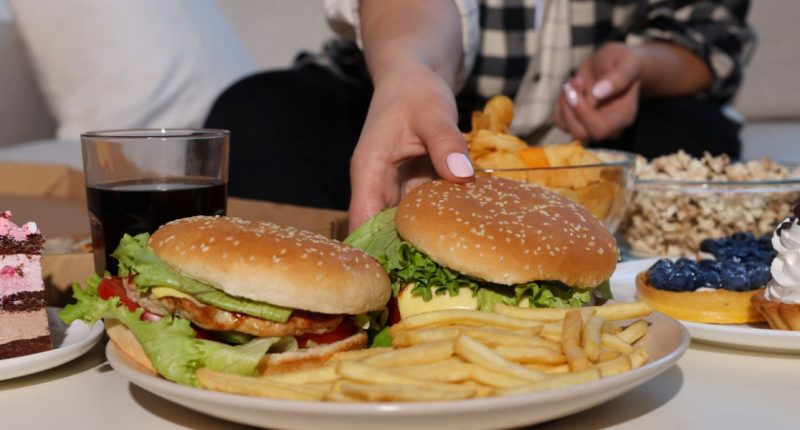Older people living in the US are more likely to be addicted to ultra-processed foods (UPFs) than alcohol or tobacco, new research has shown.
Academics have found that one in five women aged between 50 and 64 are addicted to UPFs – industrially manufactured products, often with multiple ingredients, that undergo extensive processing, including the addition of emulsifiers, sweeteners and colorants.
UPFs contribute to 60% of an adults’ energy intake, previous research has reported.
Prior studies have also suggested that a high intake of UPFs is tied to a greater risk of poor mental and physical health and social isolation.
People addicted to UPFs are likely to be obese or overweight and often consume a low amount of fruit and vegetables.
- Cognitve decline associated with some ultra-processed foods
- Eating lots of ultra-processed food linked to higher levels of inflammation marker
- Ultra processed foods linked to more fat gain even with the same calories
During the trial, the team of researchers analysed the dietary patterns of 2,038 adults, all of whom were aged between 50 and 80. Each participant had to fill in surveys and were interviewed via the phone.
Roughly 12% of the participants met the criteria for a UPFs addiction, with women more likely to be addicted than men, the study has reported.
In addition, the research has shown that women earning less than $30,000 a year are more likely to have a UPFs addiction compared to those with a higher annual income.
The study also suggests that people in poor health were two- to threefold more likely to be addicted to UPFs compared to those in better health.
According to the scientists, addiction to UPFs is several times as prevalent as addiction to alcoholism or tobacco among older adults – about 1.5% and 4%, respectively.
The findings state: “All addictions were less common among adults aged 65 to 80 years. This may reflect the habits of the younger cohort who grew up during the UPFs boom.”
Read more in the journal Addiction.




